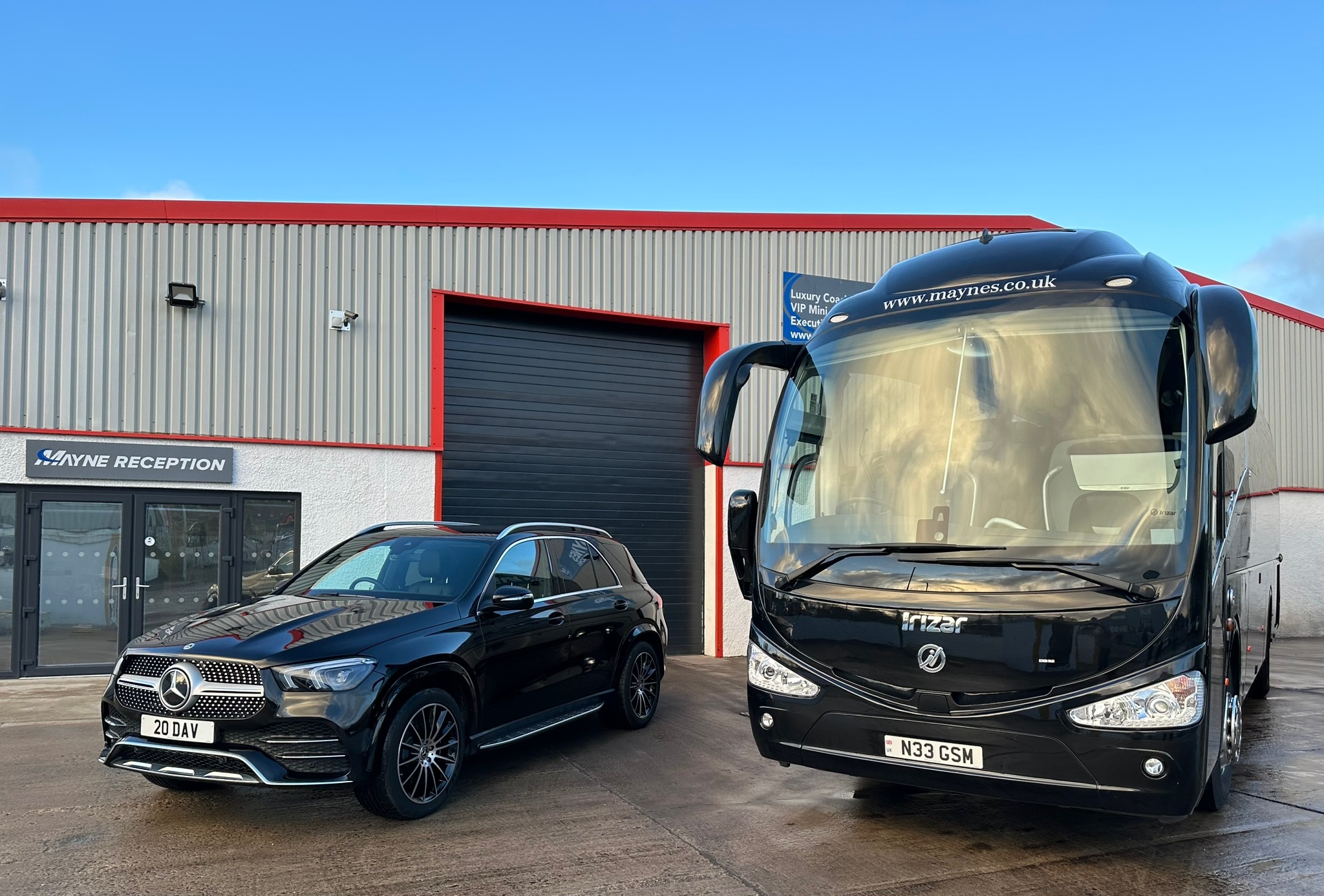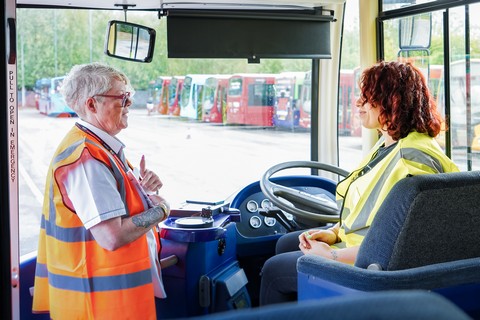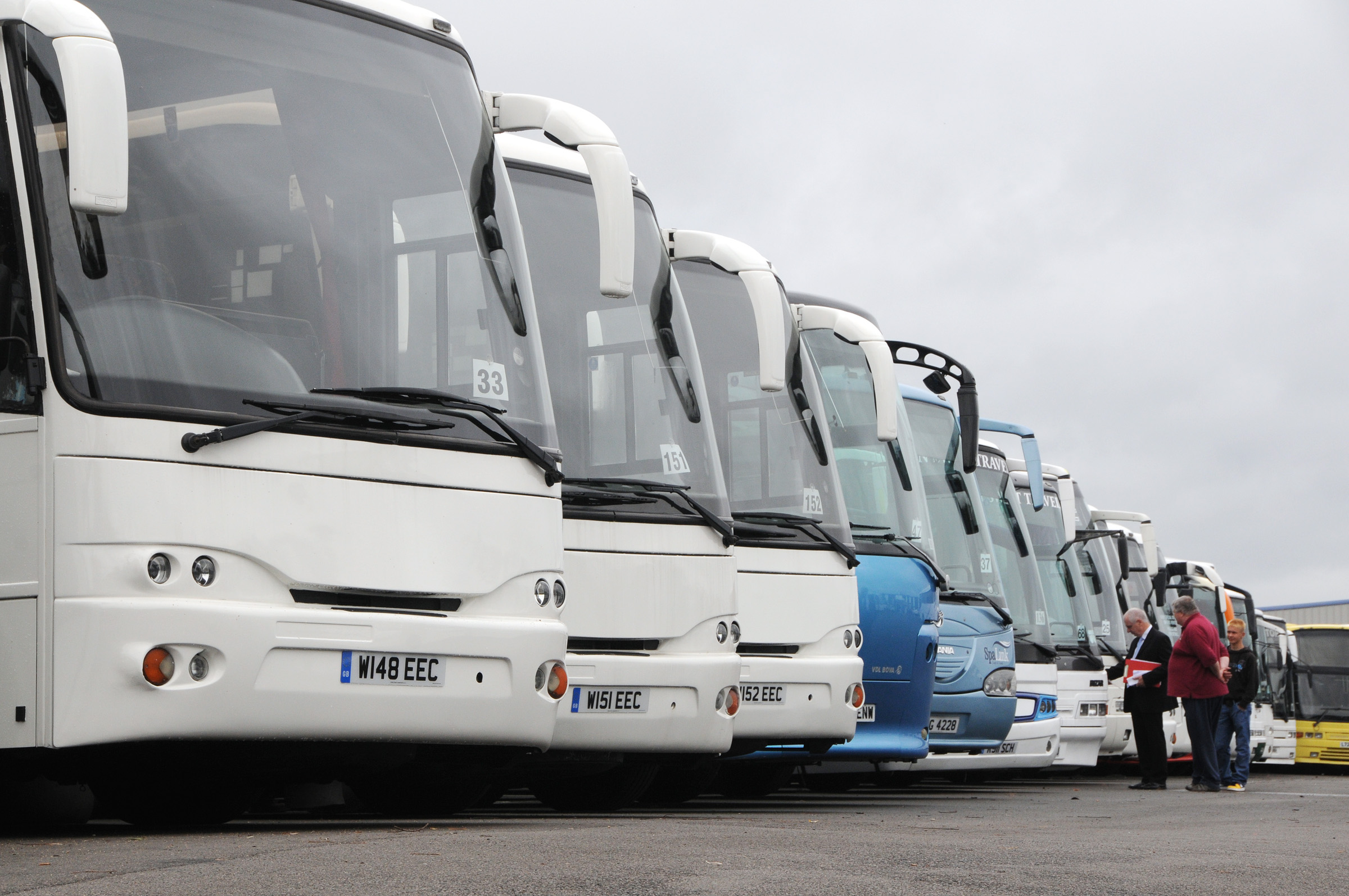Corporate and VIP work is an important source of revenue to the coach industry. Some operators are particularly well placed to leverage that market. Among them is Maynes Coaches of Buckie in northern Scotland. It recently debuted the complementary Maynes Legacy brand to capitalise on growing high-end demand, with a discreet identity and vehicles that major on comfort over capacity to deliver it.
Although coaches large and small are core to Maynes Legacy, it will also utilise cars and people carriers, including the Mercedes-Benz V-Class. That breadth is for a reason, says Operations Director Kevin Mayne; the business had identified that on high-end work, the passenger capacity of even modestly sized coaches is often not utilised – sometimes by a significant margin – and that in those cases, customers place more value on personal space and quality of service.
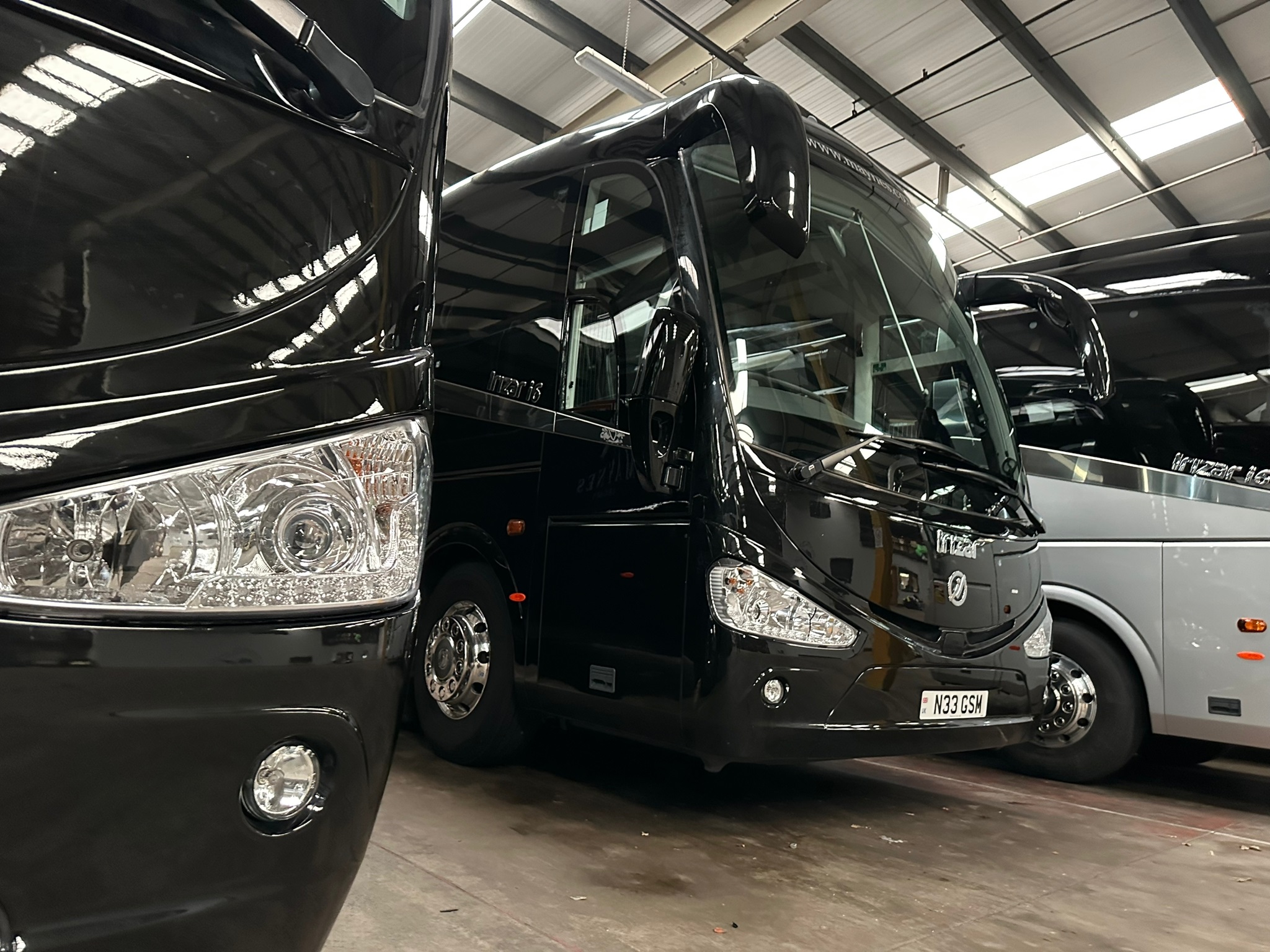
As an example of how Maynes Legacy will serve those clients, two 10.8m Irizar i6 integrals delivered as part of the brand launch seat only 35.
Similarly reduced capacities on smaller Mercedes-Benz and Iveco front-engined vehicles are also part of the recipe.
Maynes Legacy comes with an Obsidian black livery and a bespoke logo. Combined, they represent a nod to Maynes’ history; it used black in its much earlier days, while many clients that Legacy will capture are longstanding. That demonstrates that while the brand is new, much about it focuses on capturing what the award-winning operator does well already.
“This has been in the planning for some time,” says Kevin. “We already offered a successful VIP option and we wanted to refresh and rebrand it.” Legacy represents further diversification. The established core silver Maynes Coaches identity was earlier joined by a blue-based Maynes Holidays arm, while a product that provides event and concert transport has been formalised into Maynes Connect.
Maynes Legacy kept quiet during development phase
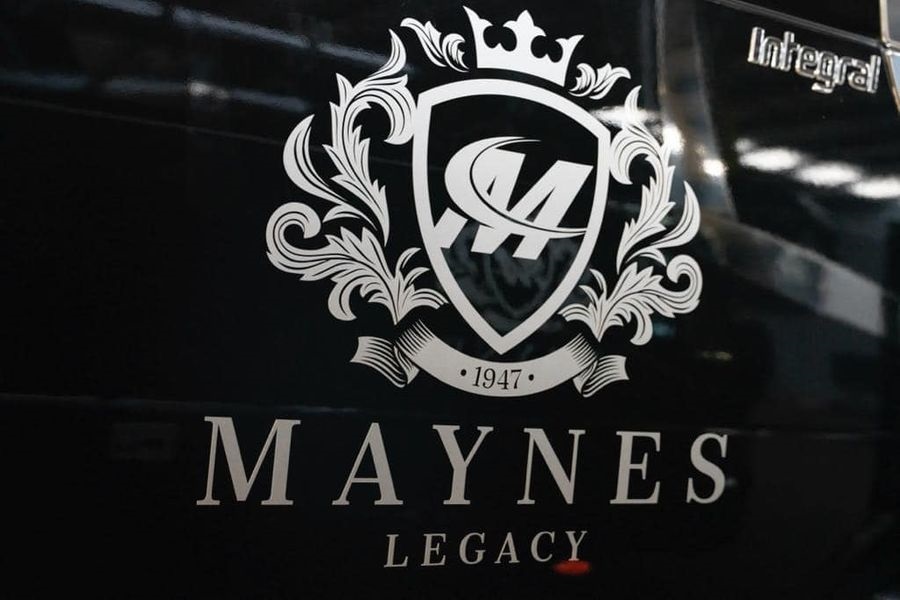
Development of Maynes Legacy was under wraps until late January.
The two i6 integrals were ordered in Q3 2022, and the opportunity to place one on Irizar UK’s stand at Euro Bus Expo last year was not taken up to keep below the radar. They have tables and a floor-mounted toilet to go with their 35 seats.
Kevin acknowledges Irizar’s help in optimising those coaches. That includes underfloor space. Luggage capacity can be key on VIP work, and that is the reason for specification of a floor-mounted toilet. EVM also prepared a bespoke layout for its coachbuilt Grand Tourer, based on the Mercedes-Benz Sprinter. The two on order will each seat 11 in a 1+1 arrangement. An existing UNVI midicoach is to a similar VIP layout and two Iveco Dailys midis – one supplied by EVM, the other by UNVI – are on order, each with 16 seats.
“Fewer seats and more space is the whole idea; it is more of an experience for customers than a coach journey,” Kevin continues.
“Some of the people that we move are used to sitting at the front of an aeroplane rather than the rear. We need to reflect that in the service that we provide rather than trying to cram them all on.” But Maynes Legacy will not be focused entirely on incoming travel. Visiting whisky distilleries and golf courses will be prominent, but other work such as corporate duties for companies with staff based in Scotland will also be represented.
New brand centres on presenting a product properly
Most of the brand creation for Maynes Legacy was done in-house, although a local business familiar with the operator through brochure design refined the logo. A new website assists with explaining the differences between the core Maynes offering and the Legacy service level.
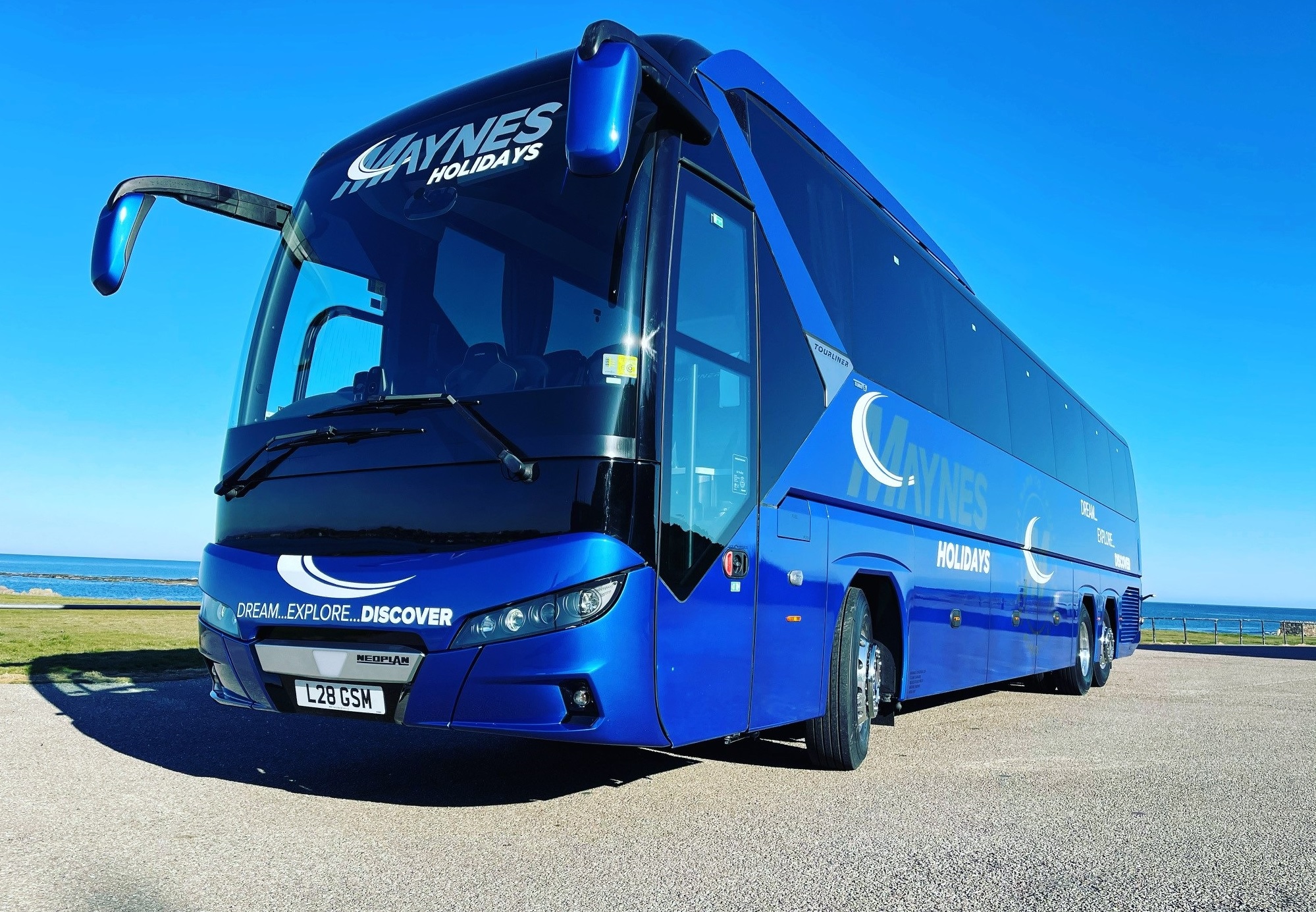
That is nothing new, Kevin notes. “It is a bit like any other operator that has a VIP coach; it’s about separating options and explaining them clearly to your clients,” he says.
Maynes Legacy has also aligned itself to the landscape around rates. They rose across the industry in 2022 as cost pressures mounted.
Such a change sometimes needs to be explained to customers, but Kevin notes that the impact can be softened with the presentation of a bespoke offering that is focused on service.
Maynes Legacy aims to capitalise on growing VIP market
While Maynes Legacy is a niche product to complement the core business, demand for the hire of VIP-specification vehicles has been increasing for Maynes, influenced by multiple factors.
“We had reached a point where we needed to grow that fleet and rejig things to suit, but key to doing so was having the right size of vehicles to fulfil demand,” Kevin explains. A rebrand and refresh of the top end fitted well. The black livery with muted branding is important for the coaches to be recognisable, but to not overly stand out.
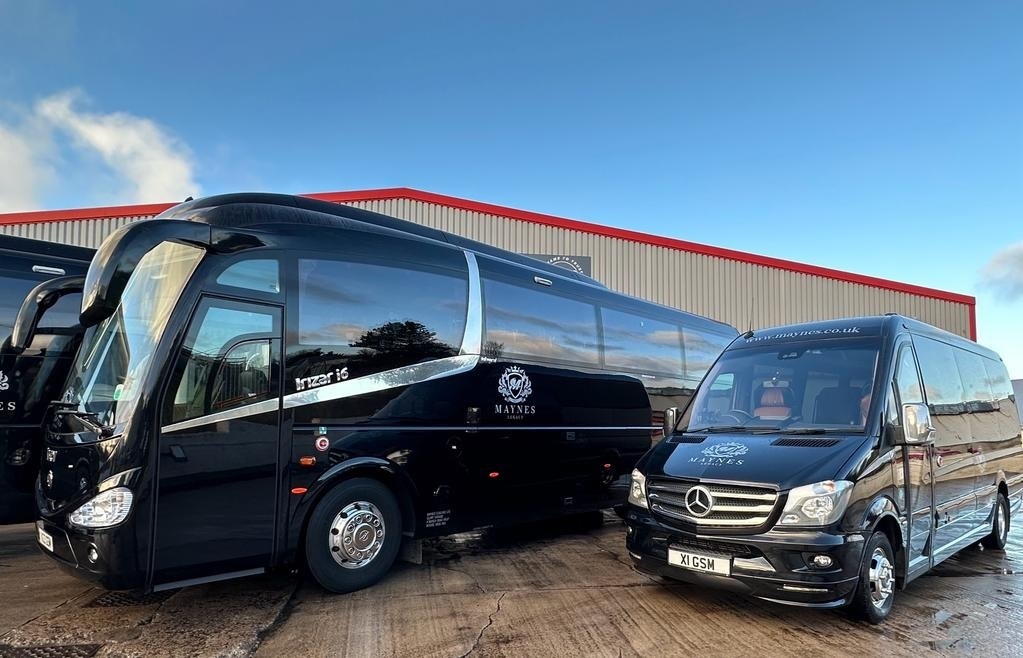
Close attention had been paid to passenger numbers on VIP work, hence the 35-seat Irizars currently being the largest members of the Maynes Legacy fleet.
But Kevin does not rule out adding something larger in the future that allows over 40 travellers to be carried in the same level of luxury.
Although Maynes Legacy was kept under wraps during preparation, it hit the ground running and one of the Irizars departed on tour on the day of launch. Across all the Maynes brands, 18 new vehicles will be delivered in 2023.
That is a major investment for what remains a small, family-owned business. Kevin says that it thanks to largely “positive light” for the coach industry in Scotland, helped by strong political engagement and an understanding there of the sector’s importance to the Scottish tourism industry.
“During the worst days of the pandemic, my brother David and I could have said ‘stuff this’ and walked away. But we have put 30 years of our lives into this business and we need to continue to drive it forward.” Maynes Legacy, Kevin believes, is the ideal way to do that.
Zero-emission already on the agenda for Maynes Coaches
Exploration of scope for zero-emission in the Maynes fleet is progressing, with potential seen for the medium- to longer-term. The key to that is clear: How support for the coach industry via the second round of the Scottish Zero Emission Bus (ScotZEB2) challenge fund crystalises.
Maynes has already discussed zero-emission coaches with some clients. It has purchased adjacent land for expansion, and Kevin raises the possibility of that aligning with such a shift. Contracts and home-to-school services – which sit together well – are under the microscope first, but some Legacy hirers have enquired.
“The matter has also been spoken about with some of the whisky distilleries concerning us being able to charge there. The deciding factor is the distance from airports to the distilleries,” he says. While a full-size battery-electric coach is already available, Kevin is keen to see something smaller. “I don’t think we are that far away; a few years, and then we might be in that market.”
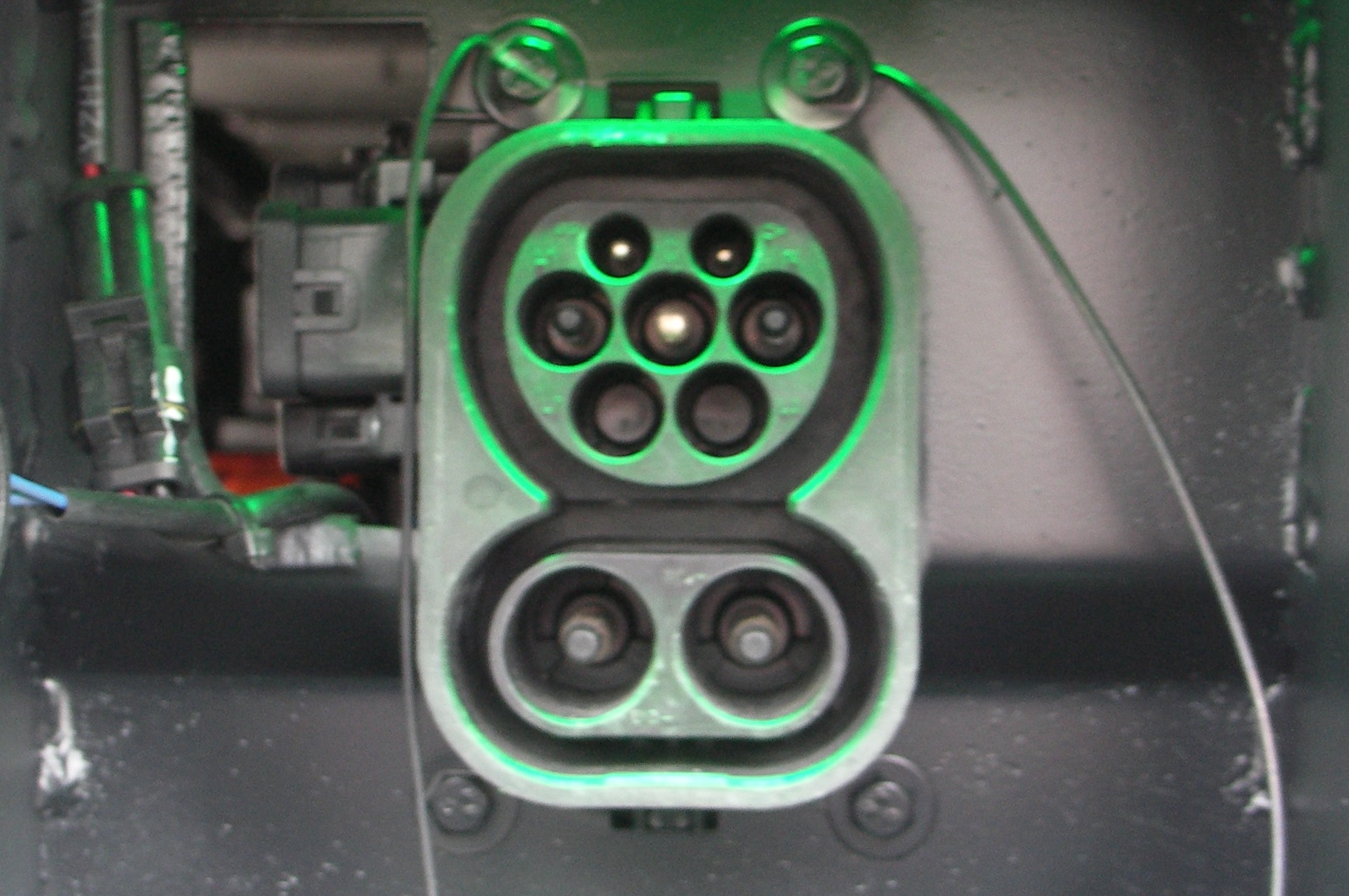
Maynes’ business on Orkney would also suit battery-electric if funding is forthcoming. Vehicles there cover around 100 miles per day.
“If the support and charging ability is present, I think we have a good case to make it work on Orkney. Back to base, charge, same again tomorrow.”
Capital outlay on zero-emission is the blocker for now, which is why Kevin is keen to see ScotZEB2 come to fruition for coaches. Other operators in Scotland are also interested, but trepidation nevertheless exists around eventually making the choice between battery and hydrogen.
That aside, Scotland is ahead of the game in looking to support zero-emission coaches. “If we as an industry can get funding from ScotZEB2, it will hopefully allow trade bodies to take the approach to Westminster and say: ‘If it’s good enough for Scotland, it’s good enough for the UK’.”




















